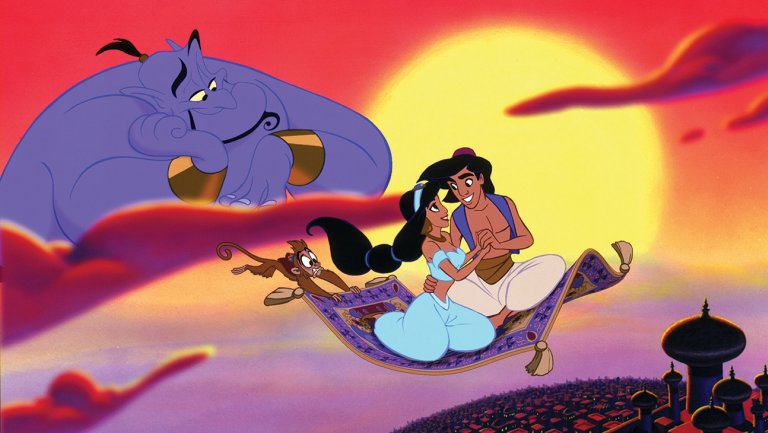Despite the narrative that we are the most progressive era in history, debates about portrayals of race in the arts continue to rage on. The latest controversy is the casting of the white actor Billy Magnussen in Disney’s live-action remake of Aladdin.
For those who’ve been lucky enough to be living under a rock, 2017 has marked the year that Donald Trump is President of the United States, the alt-right has become a significant force and white supremacy has seen a resurgence in the political sphere. It’s no real surprise then, that issues around race have been rightfully getting more attention. In the arts, race and its handling has been debated, scrutinised and pored over; with such discussions dominating both social and mass-produced media.
To be fair to the writers of those pieces, there’s a lot to deconstruct; in film, problematic racial stereotypes are everywhere, from the sexually unattractive Asian best friend, the tough black gangster, and the white lead male. That’s true both for the industry 10 years ago and for the industry today.
Recently, the team behind Disney’s live-action remake of Aladdin came under fire for casting Billy Magnussen in the film. Though the film has a diverse cast, with newcomer Mena Massoud playing Aladdin, Naomi Scott playing Princess Jasmine, Marwan Kenzari playing the villain Jafar and Will Smith playing Genie, the decision was strange for one main reason: Magnussen’s role, Prince Anders, is a brand new original character not present in the 1992 animated classic.
What immediately comes to mind is how unnecessary the addition is; the original is a classic for a reason, and for once Hollywood managed (at least for a little while), to have a cast exclusively featuring actors of colour. After all, the film is set in a fictional Middle-Eastern location; there’s no need to cast a white actor in it.
Meet the cast of #Aladdin: Will Smith (Genie), @MenaMassoud (Aladdin), @NaomiScott (Jasmine), and Marwan Kenzari (Jafar)! 🎬: @realguyritchie pic.twitter.com/1Sktyu5Sle
— Disney (@Disney) September 6, 2017
But if you look at the situation through a more cynical lens, this is sadly just another thing that Hollywood has been doing for years. Whenever there’s a cast which is mainly comprised of POC, they throw in a token white guy; look at Tom Cruise in The Last Samurai, or Matt Damon in The Great Wall. At the end of the day, Hollywood is an industry, and market forces (which apparently include demand for at least one white character in every film) dictate what does and doesn’t get made. Ridley Scott, responding to criticisms about the mostly-white cast of his film Exodus: Gods and Kings, argued that “[he] wouldn’t get financed” if the film had an all-POC cast.
At the very least, the film wasn’t completely whitewashed. Exodus, which was set in the Middle-East, featured a mostly-white cast. Worse still, the few black actors cast were mainly cast as thieves and villains. The case was similar for the recent film Gods of Egypt, in which Gerard Butler played Set, the Egyptian god of darkness, and The Prince of Persia, where Jake Gyllenhaal was puzzlingly cast to play the titular Prince of Persia.
For once Hollywood managed at least for a little while, to have a cast exclusively featuring actors of colour. After all, the film is set in a fictional Middle-Eastern location; there’s no need to cast a white actor in it.
Things do seem to be getting better, though. Slowly, acting roles are being given to a more diverse pool of actors, and more filmmakers of colour and being given the resources they need to make films. Recently, actor Ed Skrein quit the new Hellboy film after backlash to him being cast as Major Ben Daimio, a character who is portrayed as being of East Asian descent in the comics. Skrein stated that he “didn’t realise” the character was meant to be Asian, and I’m happy to give him the benefit of the doubt.
Ultimately, POC need accurate representation in films — especially in societies which are majority white — yet so many films are painfully tone-deaf in their writing and casting decisions. Still, there’s hope yet for the future; fan backlash worked in the case of the Hellboy casting, and maybe new, internet-fuelled pressure will nudge Hollywood in the right direction.
Mikhail Hanafi
(Image courtesy of Disney)

